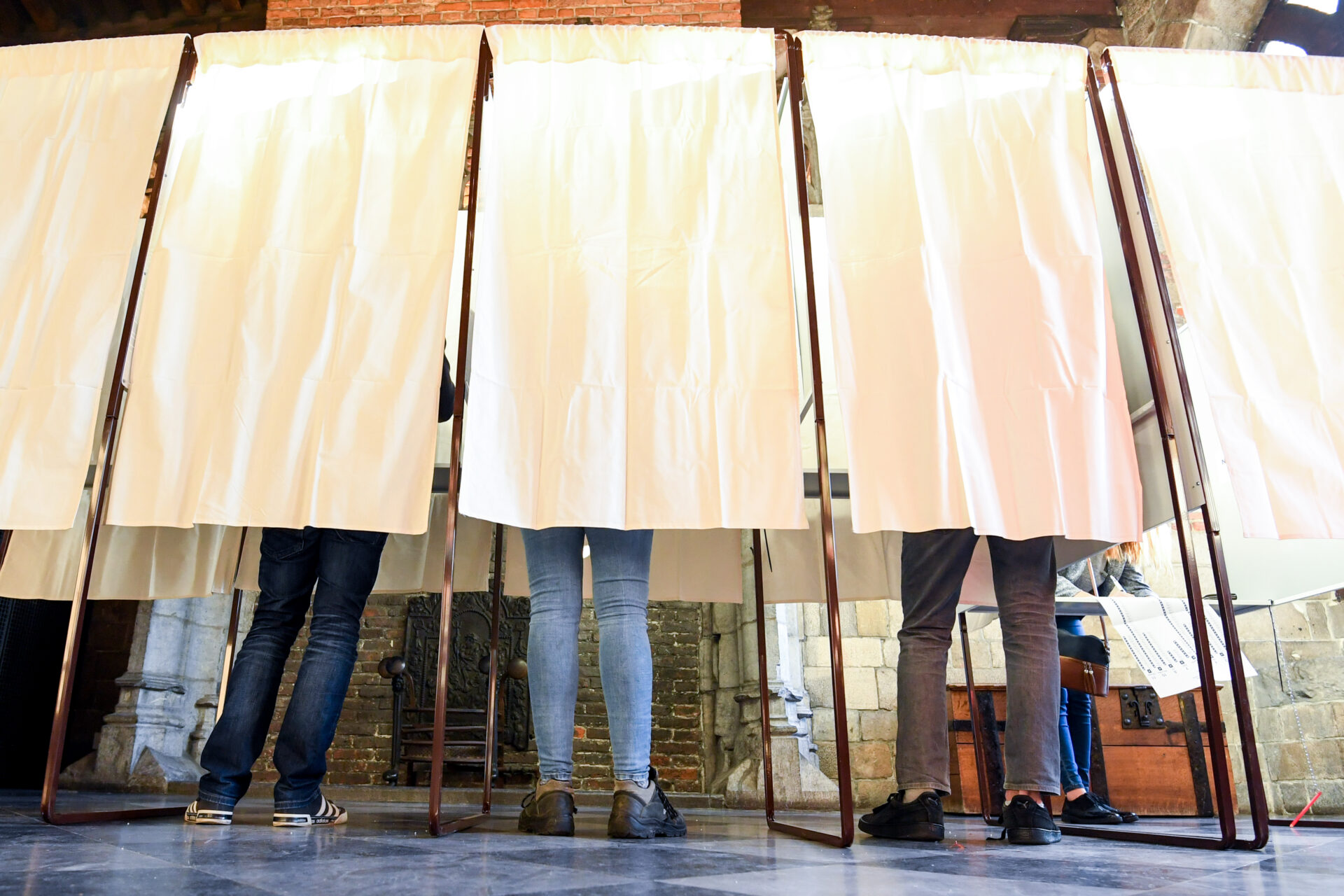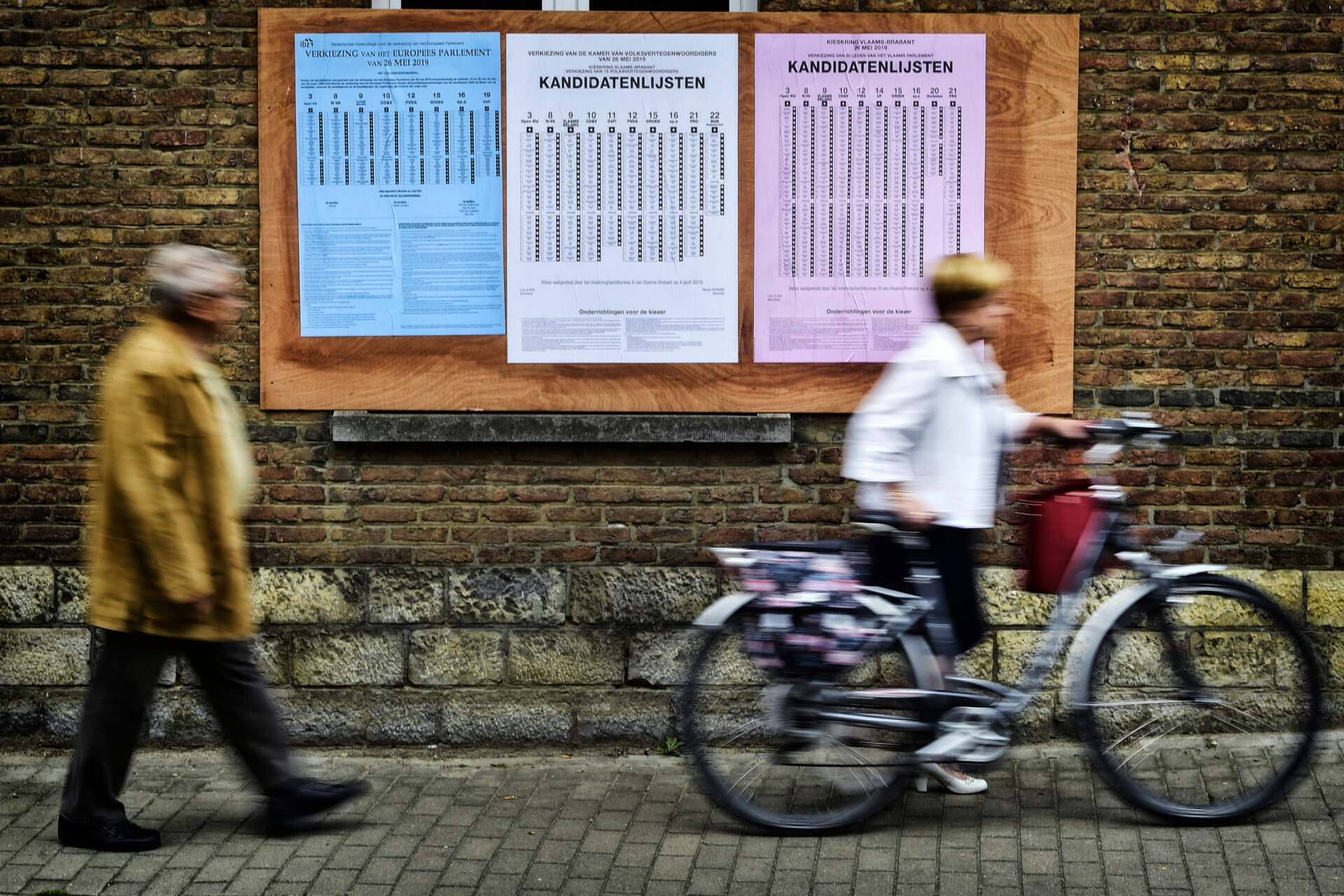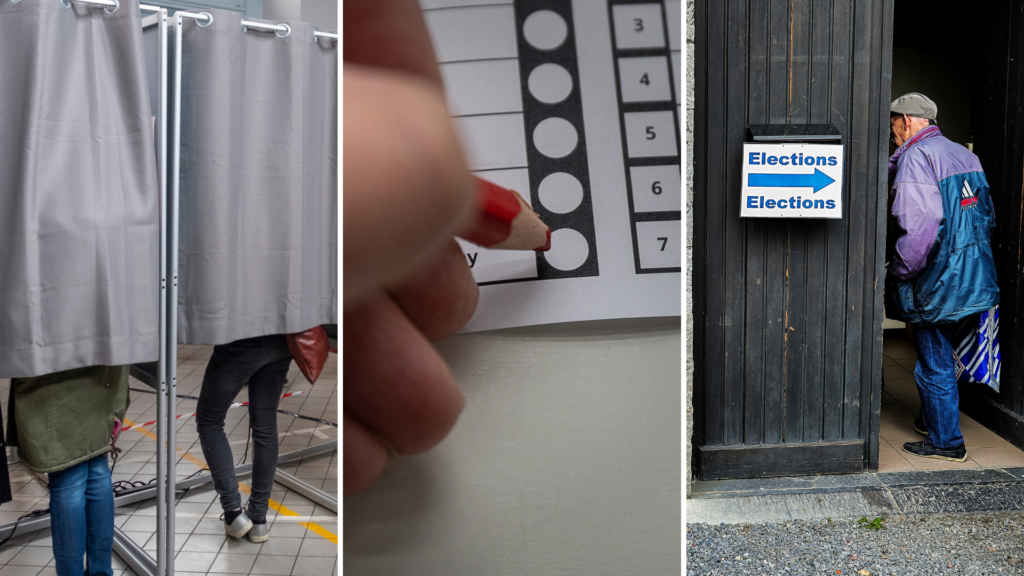As people in Belgium head to the polls this Sunday, here is a practical guide detailing the practicalities of what to know for this historic election day.
After what seems like months of build-up to the now well-known date of 9 June, people in Belgium will be heading to the polls to vote in the regional and federal elections as well as the European elections on Sunday.
Many of these people will be voting for the first time, either because they are now over 18, or have lived in Belgium long enough to be eligible to vote. Just hours before the polling stations will open their doors, we run you through what you should know before going to vote.
Who is eligible to vote on 9 June?
With the elections being just hours away, most people will know by now whether they are eligible to vote on Sunday or not, but just in case, here is a re-cap.
People in Belgium will vote a total of five times this year. They will head to the polls once on Sunday 9 June to vote in the federal, regional and European elections (for 22 MEPs of the 705 sitting in the European Parliament), and again on 13 October for the municipal and provincial elections. Find out more about what is being voted on in the various ballots here.
Belgian nationals over the age of 18 are obliged to turn up to vote for all five ballots. People must vote separately for each of the three elections organised on 9 June but can do so at the same location and time.
Those living in Brussels will have to vote four times on 9 June if they choose to vote on the Flemish side of the elections. They will also be asked to elect a Brussels representative in the Flemish Parliament as well as members of the Brussels Parliament.

Voting in Mons, 2018. Credit: Belga
EU citizens living in Belgium can vote in European and municipal elections but must register for both beforehand (the deadline for the European elections lapsed at the end of March, while registration for the October local elections runs until 31 July). Non-EU citizens living in Belgium for five years can also vote in municipal elections, but must again register in advance.
Last but not least, young people aged 16 and 17 – both Belgian nationals and EU citizens in Belgium – must also vote in the European elections in a first for Belgium. However, they will not be sanctioned if they don't.
Overall, more than 8.35 million Belgian voters and 76,464 EU citizens have been called upon to cast their votes in June. This includes as many as 830,865 Belgian "first-time voters", of whom 244,957 are aged 16 and 17. Minors who are obliged to vote received a personal letter in the post about how to cast their vote.
Another 255,000 Belgians living abroad, half of the total number living outside Belgium, registered with Foreign Affairs to cast their vote in the federal elections. They already did so on Wednesday at their embassy or consular post.
Where do I vote?
Online voting is not possible, as all votes must be cast in person. A total of 11,026 polling stations will be set up across Belgium for the elections on Sunday.
People who are obliged to vote should have received a "letter of convocation" by post at least 15 days before the elections, detailing their polling station and the fact that their vote is mandatory. People with disabilities are offered free transport to and from the polling station.
When going to vote, you must head to the polling booth indicated on the convocation letter, and bring this note (a new letter can be requested at the city hall if you lose it), as well as your identity card or passport.
The opening hours of the polling station are detailed in the letter (08:00 until 14:00 when voting on paper and until 16:00 for electronic voting). The letter also usually gives a target time to avoid long queues, but this time does not need to be strictly adhered to. In all 19 Brussels communes, voting is now done digitally.
How does the voting process work?
Upon entering the polling booth, voters are presented with a digital or physical ballot paper (an example for the federal elections in the Brussels constituency can be found here). Those who vote digitally must enter their votes through a computer screen, while those voting on paper must mark the party or candidate's box with a red pencil.
The ballot paper lists the political parties that are up for election, divided into a list for each party.

Credit: Belga / Yorick Jansens
Every "list" includes the candidates (someone who can be directly elected) and the candidate successors (who replace a candidate if they do not take their seat), who are standing for the party per constituency. Only the candidates who can be voted on per area will appear on the ballot, meaning a voter in Limburg cannot elect a candidate from East Flanders.
People can cast a "list vote", choosing an entire party, which means they accept the order between the candidates who get elected directly. It is not possible to vote for more than one party.
Voters can also choose to give their vote to candidates or candidate successors individually, referred to as a preferential vote.
People can vote for more than one name, but all names must be from the same party: again, it is not possible to vote for one candidate from the Groen party and another from Open VLD, for example. When someone votes for the list and candidates, the list vote will not count.
Are you among the around 20% of people in Belgium unsure which party or candidate to vote for? Our election guide takes you through the various parties and their stances.
What if I don't want to vote?
In Belgium, people are obliged to turn up at the polling station and enter the voting booth, but it is not mandatory to cast a vote. People who do not show up at the polling station without a valid reason officially risk a penalty of €40 up to €80, but they are rarely prosecuted and seldom fined. However, people who fail to show up at the polls four times in 15 years can lose their right to vote for ten years.
People who do not want to vote can either choose not to vote for a list or candidates (also called a "blank vote") or cast an invalid vote by voting for various lists or candidates from different lists (this is only possible when voting on paper, as the computer will display an error message).
Crossing out names or drawing a picture on the paper ballot form also makes a vote invalid.
In 2019, more than one million Belgians (nearly 10% of the country's total population) refused to vote, either by not showing up at all or casting a blank vote or an invalid one.
Under Belgian law, blank votes and invalid votes are counted but are not taken into account in the distribution of seats between the parties. However, these votes are not entirely redundant, as once the elections are over, seats in parliament are distributed based on the total number of valid votes. As the invalid and blank votes are not counted, the total number of valid votes is lower, meaning fewer votes are needed for a party to win a seat.
However, a new political party in Belgium – called Blanco – has entered the ranks, with the sole purpose of ensuring blank votes lead to empty seats in the Federal Parliament. If the party reaches the electoral threshold, this could see a blank vote lead to an empty seat in parliament. "The aim is to hold up a mirror to the Members of Parliament and say: 'look, these are all the people you do not reach'," the organisers told The Brussels Times.
Not in Belgium on 9 June?
If a person who is obliged to vote cannot do so in case of illness or disability, or if they have to work, are abroad (for work or on holiday), have to study, or have to practise their religion, for example, they can give a "proxy" to someone to vote in their place. However, that person must be eligible to vote and live in the same constituency. They must also vote for themselves first before voting for another person.
The proxy form had to be requested via the Home Affairs Ministry in good time before the elections as this is a lengthy procedure. However, it is now too late to apply for a proxy vote.

